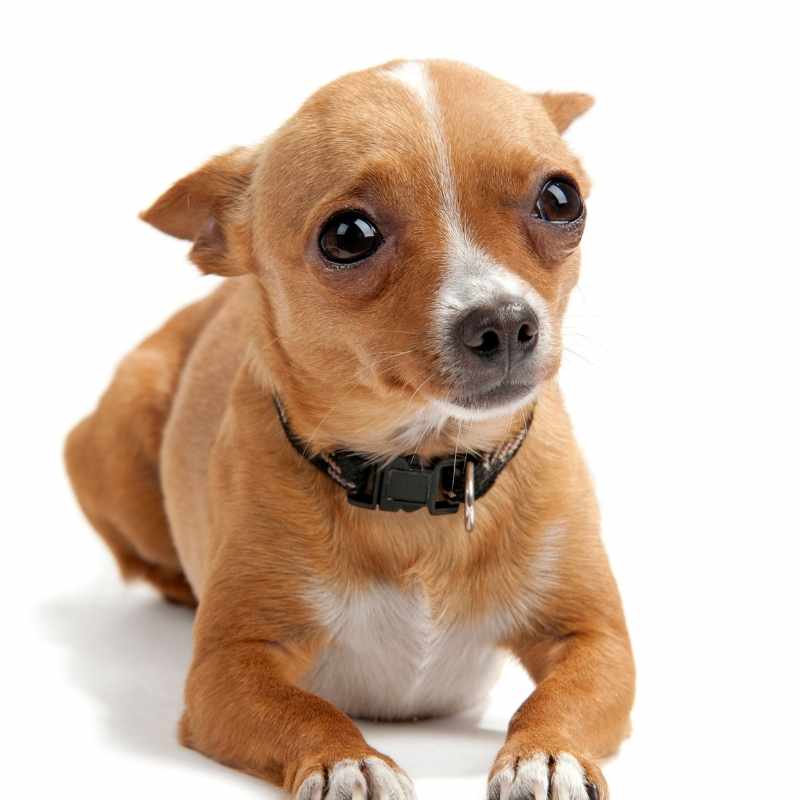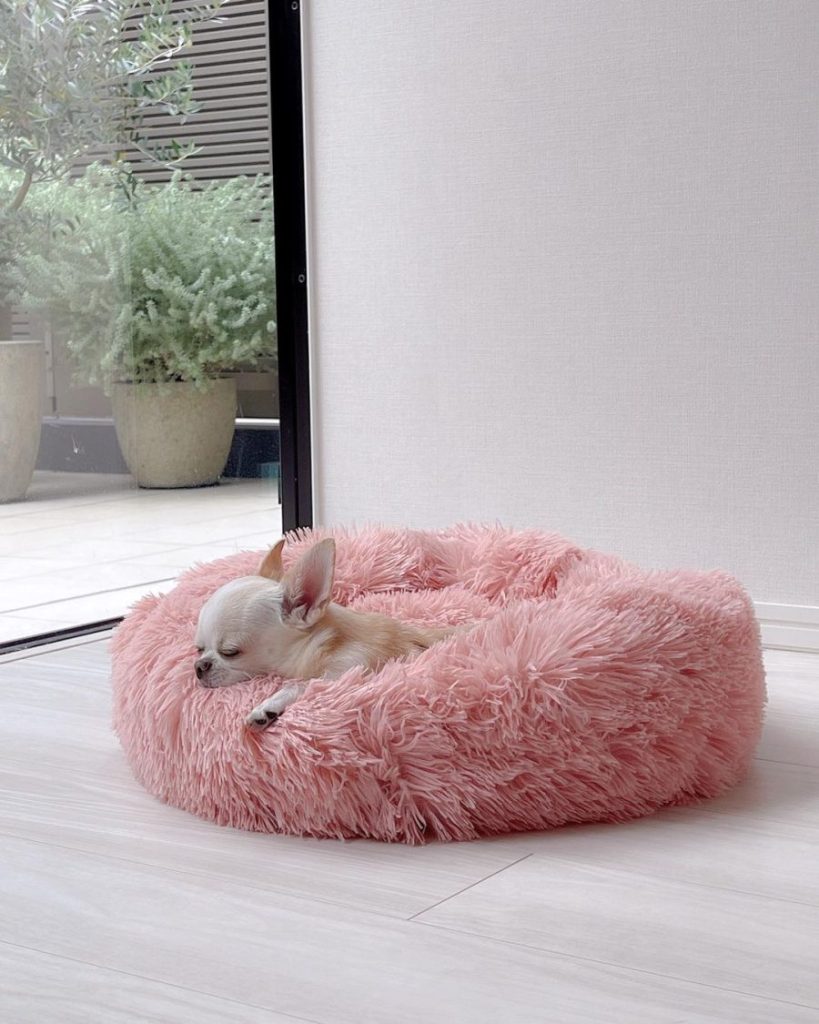Introduction
Welcome to our comprehensive guide on the Chihuahua diet! As a responsible Chihuahua owner, you want to ensure that your tiny fur baby receives the best possible nutrition for a healthy and happy life. A well-balanced diet is crucial for your Chihuahua’s overall well-being, as it directly impacts their energy levels, coat quality, and immune system.
In this article, we’ll delve into every aspect of the Chihuahua diet, providing you with practical insights, expert tips, and answers to common questions. From the best foods to feed your Chihuahua to creating a suitable feeding schedule, we’ve got you covered. Let’s embark on this nutritional journey together and ensure your tiny companion’s dietary needs are met!
Chihuahua Diet: Understanding Your Pet’s Nutritional Needs
Before we dive into the specifics of the Chihuahua diet, it’s essential to understand your pet’s nutritional requirements. As a small breed, Chihuahuas have unique dietary needs that differ from larger dogs. Here are some key factors to consider:
Size Matters: The Importance of Portion Control
Being a small breed, Chihuahuas have tiny stomachs, making them susceptible to overeating. It’s vital to practice portion control to prevent obesity and related health issues. Measure your Chihuahua’s food carefully and avoid free-feeding.
Protein Power: Providing High-Quality Proteins
Proteins are the building blocks of a healthy diet for your Chihuahua. Opt for high-quality protein sources such as chicken, turkey, or fish to support their muscle development and overall health.
Healthy Fats: Essential for a Shiny Coat
Incorporate healthy fats into your Chihuahua’s diet to maintain a glossy coat and support their skin health. Foods like salmon and flaxseed are excellent sources of Omega-3 fatty acids.
Carb Considerations: Choosing the Right Carbohydrates
Select easily digestible carbohydrates like sweet potatoes and brown rice to provide energy and support your Chihuahua’s digestive system.
Hydration: Keeping Your Chihuahua Well-Hydrated
Ensure your Chihuahua has access to fresh, clean water at all times. Hydration is essential, especially for a small breed like the Chihuahua, to maintain proper bodily functions.
The Best Foods for Your Chihuahua Diet
Now that we understand the nutritional needs of Chihuahuas, let’s explore the best foods to include in their diet. These LSI keyword-rich headings will help you navigate through the various aspects of the Chihuahua diet:
| Heading | Sub-Heading |
|---|---|
| Best Dog Food for Chihuahuas | Top Brands and Options |
| Homemade Chihuahua Diet Recipes | Nutrition-Packed Meals You Can Prepare at Home |
| Raw Food Diet for Chihuahuas | Pros, Cons, and Safety Tips |
| Balanced Diet for Chihuahua Puppies | Essential Nutrients and Growth Requirements |
| Special Dietary Considerations | Addressing Food Allergies and Sensitivities |
| Foods to Avoid for Chihuahuas | Harmful Foods You Should Never Feed Your Tiny Companion |
| Treats and Snacks for Chihuahuas | Healthy and Safe Reward Options |
| Supplementing Your Chihuahua’s Diet | When and How to Use Nutritional Supplements |
| Transitioning to a New Dog Food | Tips for Smoothly Switching Your Chihuahua’s Diet |
| Proper Hydration for Chihuahuas | Ensuring Your Pet Drinks Enough Water |
Best Dog Food for Chihuahuas: Top Brands and Options
Finding the right commercial dog food for your Chihuahua can be overwhelming, considering the plethora of options available. To help you make an informed decision, we’ve compiled a list of top-rated dog food brands that cater specifically to Chihuahuas:
- Royal Canin Chihuahua Formula: This breed-specific formula is tailored to meet the nutritional needs of Chihuahuas, including their small kibble size.
- Blue Buffalo Small Breed: Rich in proteins and whole grains, this food supports muscle development and provides energy for your active Chihuahua.
- Wellness Core Grain-Free Small Breed: Packed with premium proteins and grain-free carbohydrates, this option is ideal for Chihuahuas with food sensitivities.
- Hill’s Science Diet Small Paws: Formulated for small breed dogs, this food promotes healthy digestion and contains antioxidants for a strong immune system.
Remember to carefully read the labels and choose dog food that contains high-quality ingredients without fillers or artificial additives. Additionally, consider your Chihuahua’s age, activity level, and any specific dietary requirements they may have.
Homemade Chihuahua Diet Recipes: Nutrition-Packed Meals You Can Prepare at Home
Many Chihuahua owners prefer preparing homemade meals to have better control over their pet’s diet. Here are two delicious and nutritious homemade recipes:
- Chicken and Sweet Potato Delight:
Ingredients:
- 1 cup boneless, skinless chicken breast, cooked and diced
- 1/2 cup cooked sweet potato, mashed
- 1/4 cup peas, steamed
- 1 tablespoon coconut oil
Instructions:
- Combine the diced chicken, mashed sweet potato, and steamed peas in a bowl.
- Drizzle the coconut oil over the mixture and gently toss until well-coated.
- Serve the delicious homemade meal to your Chihuahua and watch them enjoy!
- Salmon and Brown Rice Feast:
Ingredients:
- 1/2 cup cooked salmon, flaked
- 1/2 cup cooked brown rice
- 1/4 cup carrots, finely chopped
- 1 tablespoon olive oil
Instructions:
- In a bowl, mix the flaked salmon, cooked brown rice, and chopped carrots.
- Drizzle the olive oil over the mixture and stir until evenly distributed.
- Treat your Chihuahua to this delectable homemade feast and witness their delight!
These homemade recipes ensure your Chihuahua receives essential nutrients without any harmful additives or preservatives. Always consult your veterinarian before introducing homemade meals to ensure they meet your pet’s dietary requirements.
Raw Food Diet for Chihuahuas: Pros, Cons, and Safety Tips
The raw food diet, also known as the BARF (Biologically Appropriate Raw Food) diet, involves feeding your Chihuahua raw meats, bones, fruits, and vegetables. Proponents of this diet claim various benefits, but it’s essential to consider both the pros and cons:
Pros of the Raw Food Diet for Chihuahuas:
- Nutritional Prowess: Raw food diets are rich in natural nutrients, including enzymes, which some believe can boost overall health.
- Fewer Fillers: As raw food excludes grains and fillers, it may be suitable for Chihuahuas with allergies or sensitivities to commercial dog food ingredients.
- Dental Health: Chewing on raw bones can help clean your Chihuahua’s teeth and improve their oral health.
Cons of the Raw Food Diet for Chihuahuas:
- Bacterial Contamination: Raw food carries the risk of bacterial contamination, which can lead to foodborne illnesses in both pets and humans.
- Nutritional Imbalance: Preparing a nutritionally balanced raw food diet can be challenging, leading to deficiencies if not done correctly.
- Bone Hazards: Feeding cooked bones can be dangerous as they may splinter and cause choking or internal injuries.
Safety Tips for Feeding a Raw Food Diet:
- Always handle raw food with proper hygiene, cleaning surfaces and utensils thoroughly.
- Source high-quality meats from reputable suppliers to minimize the risk of contamination.
- Consult with a veterinarian or canine nutritionist to create a balanced raw food diet that meets your Chihuahua’s specific needs.
Balanced Diet for Chihuahua Puppies: Essential Nutrients and Growth Requirements
Feeding a balanced diet to your Chihuahua puppy is vital for their healthy growth and development. Puppies require additional nutrients to support their active lifestyle and growing bodies. Consider the following guidelines when feeding your Chihuahua puppy:
- Protein for Growth: Chihuahua puppies need a higher protein intake than adults to support their rapid growth. Look for puppy food formulas with a protein content of around 28% to 32%.
- Calcium and Phosphorus: These minerals are crucial for developing strong bones and teeth. Ensure your puppy’s food contains appropriate levels of calcium and phosphorus.
- Fatty Acids for Brain Development: Omega-3 fatty acids, found in fish oil, are essential for brain and eye development in Chihuahua puppies.
- Frequent Feedings: Puppies have small stomachs and need to eat more frequently than adult dogs. Offer them four to six small meals throughout the day.
- Gradual Transition to Adult Food: As your Chihuahua puppy reaches adulthood, gradually transition them from puppy food to adult food to avoid digestive issues.
By following these guidelines, you’ll provide your Chihuahua puppy with the foundation for a healthy and happy life.
Special Dietary Considerations: Addressing Food Allergies and Sensitivities
Just like humans, Chihuahuas can develop food allergies and sensitivities. Identifying and addressing these issues is essential to ensure your pet’s well-being. Here’s what you can do:
- Monitor Symptoms: Watch for signs of food allergies, such as itching, skin rashes, or gastrointestinal disturbances. If you suspect your Chihuahua has a food allergy, consult your veterinarian for proper diagnosis and advice.
- Elimination Diet: Your vet may recommend an elimination diet to pinpoint the allergen. This involves feeding your Chihuahua a novel protein and carbohydrate source for several weeks and then reintroducing potential allergens one at a time.
- Hypoallergenic Diets: If your Chihuahua is diagnosed with specific food allergies, your vet may suggest hypoallergenic diets that exclude common allergens.
- Limited Ingredient Diets: These diets contain a minimal number of ingredients, making it easier to identify and eliminate potential allergens.
- Novel Protein Sources: Consider feeding novel protein sources like venison, rabbit, or duck if your Chihuahua has allergies to common proteins like chicken or beef.
Addressing food allergies and sensitivities promptly can significantly improve your Chihuahua’s quality of life and prevent potential health issues.
Foods to Avoid for Chihuahuas: Harmful Foods You Should Never Feed Your Tiny Companion
While it’s essential to know what to feed your Chihuahua, it’s equally important to be aware of foods that can be harmful to their health. Avoid feeding your Chihuahua the following items:
- Chocolate: Contains theobromine and caffeine, which are toxic to dogs and can lead to serious health issues.
- Grapes and Raisins: These fruits can cause kidney failure in dogs, including Chihuahuas.
- Onions and Garlic: Contain compounds that can damage a dog’s red blood cells, leading to anemia.
- Xylitol: Found in sugar-free gum and other products, xylitol is highly toxic to dogs and can cause rapid insulin release, leading to hypoglycemia.
- Alcohol and Caffeinated Beverages: Consumption of alcohol or caffeine can be life-threatening for dogs.
- Bones and Cooked Bones: Cooked bones can splinter and cause choking or internal injuries, while small bones can be a choking hazard.
Remember to secure your trash cans and keep harmful foods out of your Chihuahua’s reach to prevent accidental ingestion.
Treats and Snacks for Chihuahuas: Healthy and Safe Reward Options
Treating your Chihuahua to occasional snacks is a wonderful way to reinforce good behavior and strengthen your bond. However, not all treats are created equal. Choose healthy and safe options:
- Small Dog Treats: Opt for treats specifically designed for small dogs like Chihuahuas to ensure the right portion size.
- Vegetables: Many dogs enjoy crunchy vegetables like carrots and green beans as healthy treats.
- Fruits: Offer small portions of dog-safe fruits like apples, bananas, and berries as a sweet and nutritious snack.
- Freeze-Dried Meats: These treats are typically high in protein and free from harmful additives.
- Dental Chews: Dental chews designed for small breeds can help keep your Chihuahua’s teeth clean and healthy.
Remember that treats should make up no more than 10% of your Chihuahua’s daily caloric intake to prevent weight gain.
Supplementing Your Chihuahua’s Diet: When and How to Use Nutritional Supplements
While a balanced diet should provide your Chihuahua with all the necessary nutrients, there are instances where supplements may be beneficial. Always consult your vet before adding any supplements to your pet’s diet. Here are some common supplements and their potential uses:
- Omega-3 Fatty Acids: These supplements can promote skin and coat health, especially for Chihuahuas with dry or itchy skin.
- Glucosamine and Chondroitin: These supplements can support joint health and reduce the risk of joint-related issues, especially in older Chihuahuas.
- Probiotics: Adding probiotics to your Chihuahua’s diet can promote a healthy gut and aid in digestion.
- Multivitamins: Some Chihuahuas may benefit from a multivitamin supplement if their diet lacks certain essential vitamins and minerals.
Remember that supplements should complement a balanced diet, not replace it. Avoid over-supplementing, as it can lead to imbalances and potential health issues.
Transitioning to a New Dog Food: Tips for Smoothly Switching Your Chihuahua’s Diet
If you decide to change your Chihuahua’s dog food, do it gradually to prevent gastrointestinal upset. Follow these steps for a smooth transition:
- Mixing Old and New Food: Start by mixing a small amount of the new food with the old food (e.g., 25% new food, 75% old food) for a few days.
- Increase Gradually: Gradually increase the proportion of new food while reducing the old food over the course of a week or more.
- Observe Your Chihuahua: Pay attention to your pet’s reaction to the new food. If any digestive issues occur, slow down the transition process.
- Consistency is Key: Consistency in feeding times and amounts will help your Chihuahua adjust to their new diet more easily.
By transitioning slowly, you’ll give your Chihuahua’s digestive system time to adapt, ensuring a smooth change.
Proper Hydration for Chihuahuas: Ensuring Your Pet Drinks Enough Water
Proper hydration is crucial for your Chihuahua’s health, especially during hot weather or after physical activity. Here are some tips to ensure your pet stays hydrated:
- Clean Water Always Available: Provide your Chihuahua with fresh, clean water at all times. Check the water bowl regularly and refill as needed.
- Monitor Water Intake: Keep an eye on how much water your Chihuahua is drinking daily. A sudden decrease in water intake may indicate an underlying health issue.
- Add Water to Meals: If your Chihuahua is not drinking enough water, consider adding a small amount of water to their meals to increase their fluid intake.
- Keep Water Cool: During hot weather, make sure the water bowl is placed in a shaded area to keep the water cool and refreshing.
Proper hydration is essential for your Chihuahua’s overall well-being and helps maintain healthy bodily functions.
Chihuahua Diet: FAQs
Here are some frequently asked questions about the Chihuahua diet, along with concise answers:
Q: How often should I feed my Chihuahua?
A: Adult Chihuahuas should be fed twice a day, while Chihuahua puppies require more frequent meals, up to four to six times a day.
Q: Can I give my Chihuahua table scraps?
A: It’s best to avoid feeding table scraps to your Chihuahua, as many human foods can be harmful to dogs.
Q: Is it okay to feed my Chihuahua a vegetarian diet?
A: Chihuahuas are omnivores, and while they can consume plant-based foods, a balanced diet should include animal proteins for essential nutrients.
Q: Should I feed my Chihuahua dry or wet food?
A: Both options can be suitable for Chihuahuas, but dry food may help promote dental health, while wet food can be more palatable for picky eaters.
Q: Can I give my Chihuahua bones to chew on?
A: Avoid giving cooked bones to your Chihuahua, as they can splinter and cause injuries. Instead, offer safe chew toys designed for small breeds.
Q: How do I know if my Chihuahua has a food allergy?
A: Symptoms of food allergies in Chihuahuas may include itching, skin rashes, vomiting, or diarrhea. If you suspect an allergy, consult your vet for proper diagnosis and advice.
Conclusion
In conclusion, providing the right nutrition is key to maintaining your Chihuahua’s health and happiness. From choosing the best dog food to addressing special dietary considerations, we’ve covered essential aspects of the Chihuahua diet.
Remember to tailor your Chihuahua’s diet to their individual needs and consult with a veterinarian if you have any concerns or questions about their nutrition. With proper care and attention to their diet, your tiny companion will lead a long, healthy, and joyful life.



